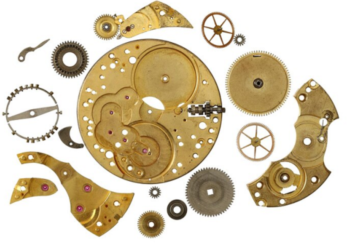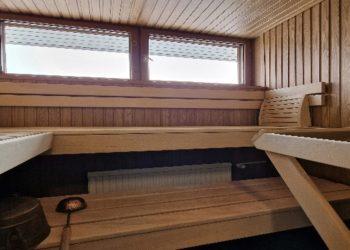Choosing the right doors for an industrial business is an important decision that impacts security, efficiency, workflow, and long-term operating costs. Industrial environments, whether manufacturing plants, warehouses, distribution centres, or commercial facilities, require doors that can withstand demanding conditions while meeting health and safety requirements. With so many options available, it can be difficult to know which type of door is best suited to your business.
Below are practical tips to help you choose the most reliable and cost-effective industrial doors, ensuring your premises stay secure, compliant, and ready to support the daily demands of your work.
Understand Your Operational Requirements
Before browsing door options, take time to understand how each door will be used in the day-to-day running of your business. Not all industrial doors serve the same purpose, so a clear knowledge of what you need helps narrow down suitable choices.
Consider whether a door will need to open and close frequently, whether it must withstand harsh weather, if it forms part of your building’s security measures, or if it plays a role in fire safety or temperature control. Loading bays, for example, need strong, quick-access doors, while internal doors may require noise control or fire resistance.
Assessing the environment, the foot traffic, and the equipment used nearby ensures the chosen doors will operate smoothly and safely.
Prioritise Durability and Longevity
Industrial doors face far more wear and tear than domestic or commercial doors. Heavy machinery, high traffic levels, constant opening cycles, and exposure to the elements can all take a toll. As a result, durability should be a top priority.
Choosing high-quality materials helps ensure your doors can withstand frequent use without deteriorating quickly. For many businesses, steel is the ideal option. Steel doors offer exceptional strength, security, and resilience against both physical impact and environmental damage. They also tend to require minimal maintenance compared to softer or lighter materials, making them a cost-effective long-term investment.
For industrial environments looking for maximum protection and reliability, doors of steel, such as those available from Metador, provide optimal performance and are designed specifically for tough working conditions.
Ensure Compliance With Safety Standards
Health and safety compliance is essential in any UK industrial setting. Doors often play a direct role in safeguarding employees, particularly in relation to fire safety, emergency exits, temperature control, and noise protection.
If your business handles hazardous materials or operates in fire-prone environments, fire-rated doors may be required by law. These doors help to slow the spread of fire, allowing staff more time to evacuate safely. Similarly, emergency exit doors must comply with UK fire regulations, be easy to operate, and remain unobstructed at all times.
Always check that the doors you’re considering meet relevant British Standards (BS) and building regulations. A reputable supplier will provide certifications and compliance details, helping you ensure your facilities remain safe and legally compliant.
Think About Security Requirements
Security is a major concern for industrial businesses, particularly those that store valuable equipment, machinery, or stock. The right doors can act as a strong deterrent against theft, vandalism, and unauthorised entry.
Steel doors are widely recognised for their superior security benefits. Their reinforced construction, internal locking systems, and resistance to forced entry make them a reliable choice for securing industrial premises. Adding security features such as multi-point locking, tamper-resistant hinges, and reinforced frames can provide even greater protection.
Consider the level of risk associated with your building’s location and the nature of your business, then choose a level of security that matches those challenges.
Consider Energy Efficiency
Energy efficiency might not be the first thing that comes to mind when choosing industrial doors, but it can make a significant difference in running costs, especially for large facilities. Doors that provide good insulation help maintain consistent temperatures, reducing the strain on heating and cooling systems.
For temperature-controlled environments such as food production, pharmaceuticals, or cold storage, investing in insulated doors is essential. Even for general industrial premises, better insulation can reduce energy loss, lower utility bills, and create a more comfortable working environment.
Look for Customisable Options
Every industrial business is different, and a one-size-fits-all approach rarely delivers the best result. Customisable door options allow you to tailor features such as size, thickness, insulation levels, window panels, ventilation, locking mechanisms, and finishes. It ensures a perfect fit for your building and operational needs. They also enhance overall functionality, safety, and aesthetic appeal. Working with a supplier that offers custom-built solutions helps ensure your doors support your workflow rather than hinder it.
Factor in Installation
Even the highest-quality industrial doors must be installed correctly to perform at their best. Professional installation ensures the door fits securely, operates smoothly, and complies with safety regulations. Poor installation can lead to operational problems, increased maintenance, and safety risks.
Final Thoughts
Finding the right doors for your industrial business is about more than simply choosing something that looks strong. It requires careful consideration of safety, practicality, durability, and compliance with UK regulations. When you factor all this in, you’ll be able to narrow down your options and find something suitable.
David Prior
David Prior is the editor of Today News, responsible for the overall editorial strategy. He is an NCTJ-qualified journalist with over 20 years’ experience, and is also editor of the award-winning hyperlocal news title Altrincham Today. His LinkedIn profile is here.











































































